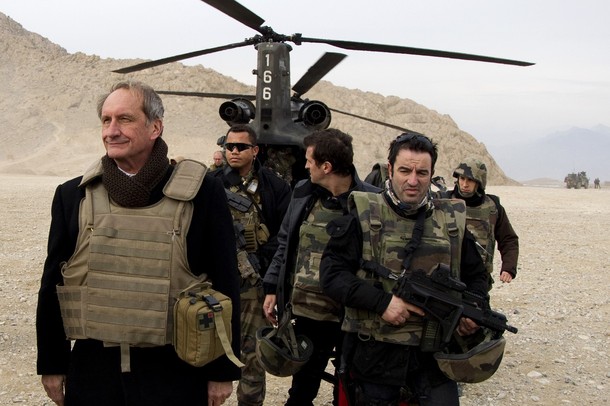
From Jon Boone, the Guardian: Mutual mistrust and contempt between local and foreign forces in Afghanistan that often borders on hatred is one of the main reasons why Afghan troops increasingly turn their guns on their Nato comrades, a damning report has found.
The research, commissioned by the US military, said American soldiers enrage their Afghan colleagues with what the report describes as extreme arrogance, bullying and "crude behaviour."
It also heavily criticised as "profoundly intellectually dishonest" the Nato claims that the killing of alliance troops by Afghan soldiers is extremely rare.
The data suggests incidents such as the killing on Friday of four French soldiers "reflect a rapidly growing systemic homicide threat (a magnitude of which may be unprecedented between ‘allies’ in modern military history)."
It warned that the problem is now so serious that it is "provoking a crisis of confidence and trust among westerners training and working with Afghan National Security Forces" (ANSFs).
According to behavioural scientist Jeffrey Bordin’s report, the number of attacks have been growing, with 26 incidents of killings or attempted killings since early 2007. Those attacks led to the deaths of 58 foreign personnel.
While some of these incidents involved Taliban infiltrators, Bordin believes many resulted from "deep-seated animosity, often stimulated by social and personal conflicts."
Based on interviews with 613 Afghan security forces, the document paints an extremely bleak picture of mutual contempt and misunderstanding between the two sides. . . .
The factors that create the most animosity included US military convoys blocking traffic, returning fire on insurgents in an apparently indiscriminate way, risking civilian lives, "naively using flawed intelligence sources" and conducting raids on Afghans’ private homes.
Another cause for concern is the fact that armed Afghan soldiers almost never intervene when one of their comrades is attempting to kill Nato soldiers.
On Friday, Nato’s International Security Assistance Force (Isaf) said the so-called "red team study" was produced by an outside contractor and was not approved or endorsed by senior Isaf officials who reviewed it.
Isaf said the study "suffered from irrelevant generalisations, narrow sample sets, unprofessional rhetoric and sensationalism." (photo: Getty)
Image: getty%201%2023%2012%20Longuet.jpg
